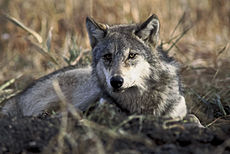 It has always amazed me that some art apparently has the power to suggest suicide to people. Goethe's novella Die Leiden des Jungen Werthers apparently caused many suicides among German youth, who dressed themselves in the style of the hero and even had the same book beside them when they committed suicide.
It has always amazed me that some art apparently has the power to suggest suicide to people. Goethe's novella Die Leiden des Jungen Werthers apparently caused many suicides among German youth, who dressed themselves in the style of the hero and even had the same book beside them when they committed suicide.Similarly, the Hungarian song Szomorú vasárnap (Gloomy Sunday) apparently has the power to suggest suicide to those who listen to it, according to Curious Expeditions:
Hauntingly beautiful, the story goes that the song was so sad, so depressing, so completely soul crushing, that upon hearing it even once, Hungarians were driven to suicide. And not just a few, during its era, hundreds of suicides were attributed to the melody.Billie Holliday also recorded a version, which is certainly very sad and gloomy (but then so are most of her songs).
Then of course there are all the novels about suicide: The Virgin Suicides by Jeffrey Eugenides; A Long Way Down by Nick Hornby; Suicide Wall by Alexander Paul.
Chris Power in The Guardian blog further explores the theme of literary suicide. Both Schopenhauer and Donne defended it, and Plutarch considered Cato the Younger's suicide a noble death. The Romantics lauded the death of Chatterton as 'the apotheosis of artistic sensibility'.
There is also a tradition in Japan of writing haiku before committing suicide (and also before a natural death):
In a full ceremonial seppuku (Japanese ritual suicide) one of the elements of the ritual is the writing of a death poem. The poem is written in the tanka style (five units long which are usually composed of five, seven, five, seven, and seven syllables). Asano Naganori, the daimyo whose suicide the forty-seven ronin avenged, wrote a death poem in which commentators see the immaturity and lack of character that led to him being ordered to commit seppuku in the first place.Oddly, different countries have different suicide rates, which remain fairly constant, perhaps because of varying cultural attitudes to suicide. Hungary is number 5 on the list.
Goths are also fascinated with death and gloom, as this song by Emilie Autumn, The Art of Suicide, illustrates. They also love death in general; Chas Clifton recently spotted a Gothic Book of the Dead, which offers advice on:
Meditating on gravestone sculptures, creating a necromantic medicine bag, keeping a personal book of the dead, and other exercises will help you explore the vital, transformative forces of death.Chas declares himself no longer entranced by death, having experienced too much of it lately. I agree - life is too full of joy and complexity and love - but it's a curious pleasure to wallow in melancholy sometimes.
She dwells with Beauty—Beauty that must die;... as Keats so eloquently expressed it in his Ode on Melancholy.
And Joy, whose hand is ever at his lips
Bidding adieu; and aching Pleasure nigh,
Turning to poison while the bee-mouth sips:
Ay, in the very temple of Delight
Veil’d Melancholy has her sovran shrine,
Though seen of none save him whose strenuous tongue
Can burst Joy’s grape against his palate fine;
His soul shall taste the sadness of her might,
And be among her cloudy trophies hung.
Suicide is always a tragedy, and leaves heartbreak in its wake. But its cultural aspects are very interesting.

